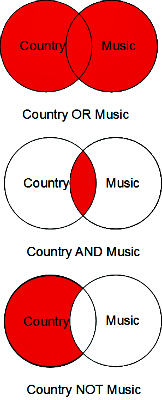



Truncation is the use of an asterisk (*) to replace one or more letters in a search term.



What do you need to find out or verify about your topic?
List research questions (big or small!), your thesis statement, and key words or phrases.
So...what's the difference between KEYWORD v. SUBJECT searching?
Which search would find the LEAST amount of search results? (Tip: the * finds alternate endings)

Which search statement would give you the FEWEST number of hits?
Which search statement would give you the FEWEST number of hits?
Which search statement would give you the FEWEST number of hits? (Tip: the * finds alternate endings)
Which search statement would give you the FEWEST number of hits?

Develop a search strategy
1. Search operators may be used to create relationships between keywords.
There are three search operators:
a. and specifies that both words must occur in a record.
Example: vegetarian* and diet*
b. or specifies that one or the other (or both) words must occur in a record.
Example: vegetarian* or diet*
c. not specifies that the word after not must not occur in a record.
2. Truncation is the use of a symbol, such as an asterisk (*), to replace one or more letters in a search term.
This can be used to retrieve:
a. both the singular and plural forms of a word.
Example: vegetarian* matches vegetarian and vegetarians
b. words that begin with the same root.
Example: diet* includes diet, diets, dietetics, dietician, and dieticians
Truncation broadens your search by allowing you to retrieve all variant endings or spellings of that word.

The keyword search vegetarian* AND diet* will retrieve fewer hits than vegitarian* OR diet*